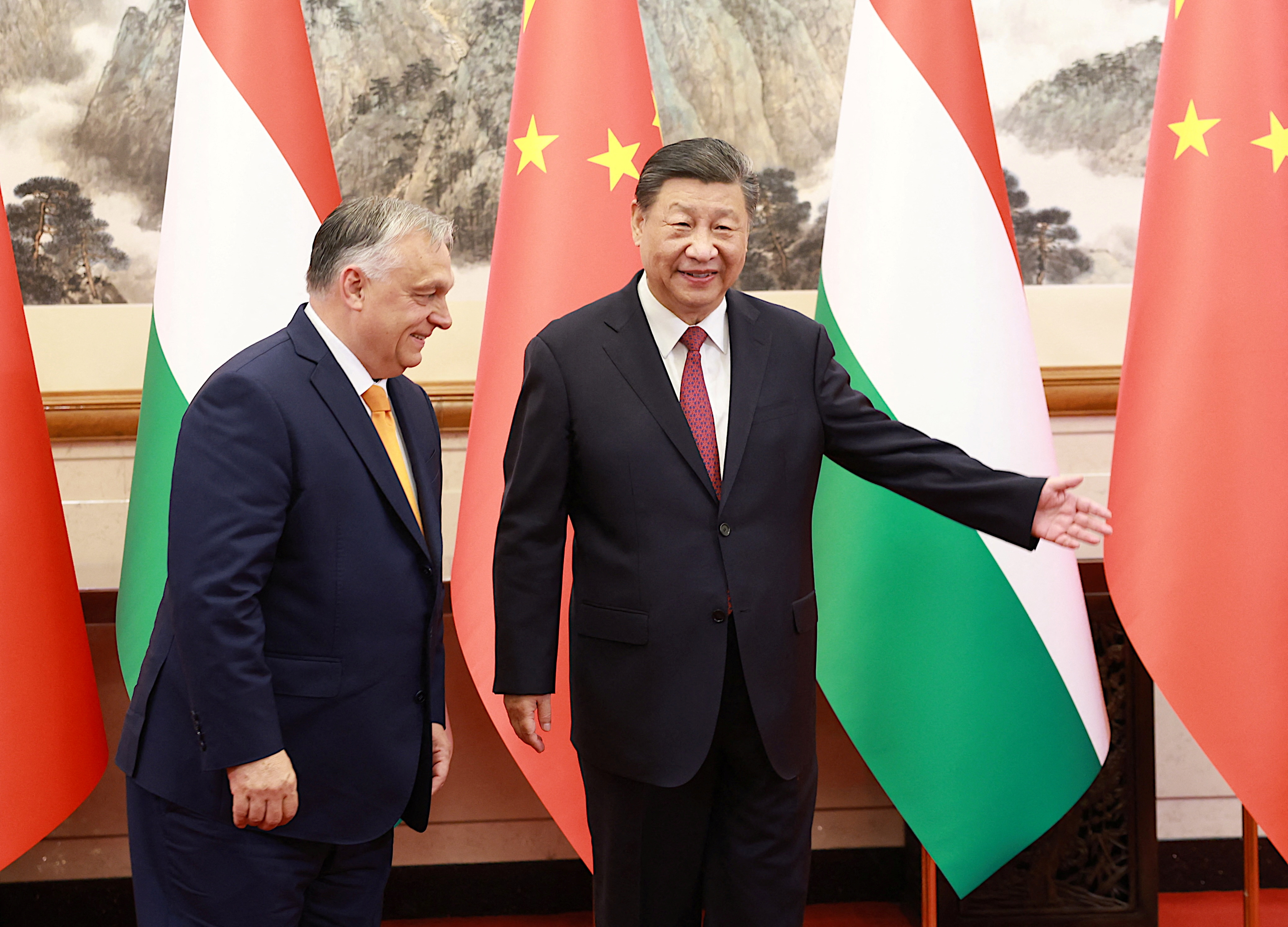Hungarian Prime Minister Viktor Orban visited Chinese President Xi Jinping in Beijing. This visit aimed to discuss a potential peace deal for Ukraine. It occurred just days after Orban’s meeting with Russian President Vladimir Putin, which angered some European Union leaders.
Orban on A Peace Mission
Orban described his visit to Beijing as the third leg of his “peace mission.” He has undertaken this mission without the support of the European Commission or Ukraine. Hungary has just assumed the EU’s rotating presidency, but Orban has already met with Ukrainian President Volodymyr Zelenskiy in Kyiv and visited the Kremlin. These actions have drawn strong rebukes from his allies.
Orban, a critic of Western military aid to Ukraine, posted on his official X account about his trip to Beijing, calling it “Peace Mission 3.0.” He is the EU leader with the warmest relations with both Xi and Putin.
China’s Peace Proposal
China, which has close connections with Russia, has been advocating a six-point peace plan signed with Brazil in May. This plan proposes an international peace conference “at a proper time” and calls for equal participation by both Ukraine and Russia.
Ukraine hopes to gain broad global backing for its own proposals on ending the war with Russia before beginning discussions with Putin. Last month, Kyiv held a large international summit in Switzerland, to which Moscow was not invited. However, Kyiv’s aim of isolating Russia is meeting resistance. China did not participate in the Swiss meeting and has Moscow’s backing for its own peace plan. Indian Prime Minister Narendra Modi is also expected to visit Russia soon, with Ukraine likely to be on the agenda.
Xi’s Perspective
Xi Jinping told Orban that the international community should create conditions for resuming direct dialogue and negotiations between Ukraine and Russia. He emphasized the importance of seeking a political solution through an early ceasefire. Orban, in turn, said China is a key power in creating the conditions for peace in the Russia-Ukraine war. This is why Orban visited Xi just two months after the Chinese leader visited Budapest.
Orban’s travel to China comes just days before a NATO conference in Washington, D.C., which will discuss providing additional support to Ukraine, which he is scheduled to attend.
Trade Tensions Between EU and China
Hungary’s leader arrived in China just after the European Commission confirmed it would impose tariffs of up to 37.6% on imports of electric vehicles made in China. Hungary has emerged as a major trade and investment partner for China, in contrast to some other EU countries wanting to minimise their reliance on the world’s second-largest economy.
Beijing has threatened to impose retaliatory anti-dumping measures against European pork imports. However, Hungarian Foreign Affairs and Trade Minister Peter Szijjarto told Hungarian state media that the two sides had negotiated an agreement on relaunching pork and poultry exports to China. He also mentioned that Chinese companies at the forefront of the electromobility transition would continue to make investments in Hungary, creating about 25,000 jobs.
EU’s Protective Trade Policy
EU trade policy has become increasingly protective due to concerns that China’s production-focused development model could flood the market with cheap goods. Chinese firms are looking to step up exports amid weak domestic demand. China’s electric vehicles have become a particular cause for concern. Because Brussels is claiming that they benefit from unfair state subsidies. This is an allegation Beijing rejects.
EU Presidency with Orban
While some EU leaders have been quick to clarify that Hungary’s EU presidency does not mean Orban represents the 27-strong bloc, Xi expressed hope that Hungary would “play an active role in promoting the healthy and stable development of China-EU relations.”
In Germany, Vice Chancellor Robert Habeck stated that Orban does not speak for Europe and that Hungary’s politics often do not represent the core of EU thinking.
Orban’s visit to Beijing underscores the complex dynamics at play in the efforts to resolve the Russia-Ukraine war. As Hungary takes on the EU presidency, its leader’s actions on the international stage will continue to draw attention and potentially impact EU relations with major global powers like China and Russia.





